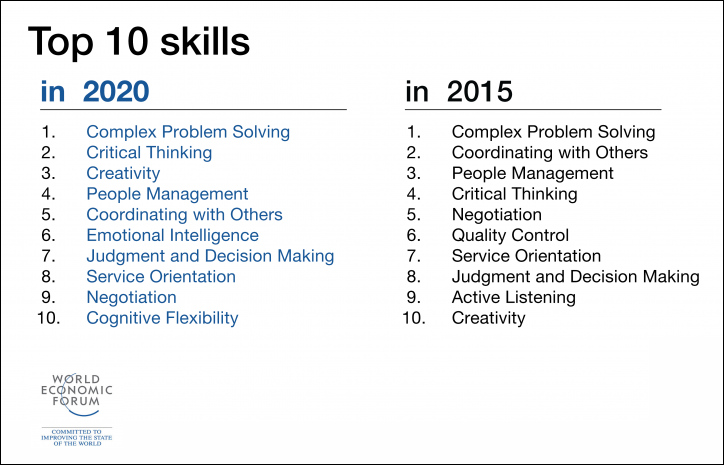
Get set for increased automation and bot use in public relations, says Toby Daniels, founder of Social Media Week, in an interview with PR Week magazine.
He says:
The most significant thing that will happen in the next 12 to 24 months, particularly for PR, is the automation of communication – where bots and chatbots in particular start to step in and take over an aspect of communication, particularly in terms of how businesses communicate with customers.
This is a topic that’s in the headlines frequently, often in the context of how robots will take over with us humans becoming expendable in the work context. Indeed, reporting often cites examples of how this is already happening or is planned to, eg, large-scale deployments of industrial robots at the expense of thousands of employees in China.
Other reporting considers a less dystopian future, one where people with valuable skill-sets, expertise and know-how will be in big demand just as automating other types of work – manual or “blue collar” work in particular – picks up pace.
There’s plenty of talk about chatbots, tools that Toby Daniels thinks will be important for PR (I agree, and see it as super important for business generally).
Looking ahead just to 2020, the World Economic Forum sees some very different skill-set requirements compared to now in many jobs in the near future, where work is increasingly collaborative and focused on solving complex problems in creative ways.
This picture very much reflects a great deal of the work of public relations – collaborative and focused on complex problem-solving in creative ways.
Earlier this year, I presented some ideas about work automation in PR during a CIPR seminar in London. My focus was on how automation embracing artificial intelligence and machine learning is here and now (whether we like it or not), in a form that offers huge advantages to PR practitioners in enhancing their skill-sets and abilities to deliver valuable work.
I introduced the phrase “cognitive PR” to mean using automation – the tools, the technology, the transformation – to enhance your abilities. So, for instance, I talked about Watson, the artificial intelligence platform from IBM (my employer), and the key role it can play in analytics and PR measurement that gives you access to huge amounts of relevant data that enables you to glean insights faster and more accurately than you ever could without such an aid.
The key here is unstructured data, the mass of information that makes up over 80% of all data (the other 20% is structured data). Why is this important? Look at this simple diagram that suggests the scope of what you need to pay attention to where automation is the only way you can get what you need, quickly and at scale.

Here’s the deck I used in that seminar.
The automation of communication, as Social Media Week’s Toby Daniels suggests, is a reality already. We see it all around us now, from chatbots to so-called “robo-journalism” where sports reports are produced by computer algorithms: the robo journalists (here’s how that works). Last month, Gorkana posted a useful narrative on what robo-journalism means for PR.
You need to do more than just pay attention to all this, though. I mentioned skill-sets and abilities earlier. In the PR context, this means ensuring your abilities, skills and experiences place you in a value position, ie, you know exactly how to use the tech at your fingertips to enhance those abilities. Make sure you can demonstrate your subject-matter expertise.
That’s much of what cognitive PR is about. If you’re already digital, then cognitive is what’s next.
(Social Media Week London takes place this week. Many of the events are focused on automation in PR: see the schedule.)
Additional reading:
- AI chatbot apps to infiltrate businesses sooner than you think – TechTarget
- The Future of Jobs report – World Economic Forum
- Want a job in 2025? These are the sectors to focus on – World Economic Forum
- A Closer Look At IBM’s Future (Part 3): An Interview With Watson CTO Rob High – Seeking Alpha
- We Asked a Futurist About the Jobs That Don’t Exist Yet – Vice
(Photo at top via IBMphoto24)













9 responses to “Enhance your skills with cognitive PR”
Enhance your skills with cognitive PR https://t.co/fnDRTeT0mW https://t.co/YZbHclHLmp
Hobson: Enhance your skills with cognitive PR:
Get set for increased automation and bot use in public relati… https://t.co/bepr9NYYbL
Enhance your skills with cognitive PR https://t.co/bDwveLFbVT
Enhance your skills with cognitive PR: Get set for increased automation and bot… https://t.co/LYRBHfK4vN #Artificial_Intelligence #Business
RT @jangles: Enhance your skills with cognitive PR https://t.co/fnDRTeT0mW https://t.co/YZbHclHLmp
Enhance your skills with cognitive PR https://t.co/nN1ZgFnH1I @jangles + skill-set requirements for 2020
#PRautomation and skill enhancing cognitive PR is what’s now and what’s next, according to @jangles #SMW https://t.co/fLmRZjhwHb
Enhance your skills with cognitive #PR https://t.co/YGr0Upoqv4 via @jangles
[…] AI, in both meanings, is a component that enables a cognitive business (that’s another big topic that deserves a separate article; in the meantime, think of cognitive PR). […]